You’ve been looking into Florida private drug rehab facilities. You know that you need help. However, before you sign up, you want to know what goes on behind closed doors. What is drug rehab really like?
What is Drug Rehab Really Like?
Customization is the key to success in addiction therapy. Therefore, private facilities focus their attention on tailoring each aspect of your experience to your needs. It starts with your treatment delivery. A typical day in drug rehab varies, depending on what you choose.
Almost all program participants opt for inpatient treatment. It means that you live at the center for the duration of the therapy. Depending on your needs, this might take 30, 60, or 90 days. There’s no need to rush.
Therapists want to be sure that you receive the help you need. As you stay at the center, you relearn how to socialize while sober. It’s an essential aspect of care since many people withdraw from others while using drugs. As you can see, immersing yourself in the therapeutic atmosphere has its advantages.
For people with a strong support network, there’s also the partial hospitalization rehab program residents trust. In this program, you don’t live at the center. Typically, you live at home. Besides that, some facilities offer sober living accommodations to their partial hospitalization clients.
If this is an option, you still have the advantage of socializing with peers in recovery after therapy. While you might not live at the center, you get the best of both worlds. Since the supervision is not as severe in this setting, you practice sober living while getting care.
A third option is an intensive outpatient program. Doing so means that you take a part-time approach to recovery. Therefore, most first-time program participants won’t enter this program. Rather, it’s a great option when you step-down care or recently suffered a relapse.
That said, there could be circumstances where the outpatient setup is ideal for the right candidate. Before you make up your mind, it is best to discuss your options with an intake specialist who can explain the different approaches to you.
What is Dual Diagnosis Drug Rehab?
A co-occurring condition can affect your desire for drugs or alcohol. For example, depression or anxiety changes the way you see life. You want to numb yourself. Therefore, you reach for drugs.
Most importantly, the condition creates a trigger. Besides that, it can lead to relapse. That’s why therapists will treat psychiatric conditions alongside an addiction. A dual diagnosis treatment program is an excellent way of helping you toward recovery.
Finding The Best Addiction Treatment
No matter what treatment delivery you choose, you receive the same excellent care. A private luxury drug rehab will offer you evidence-based treatments. These are modalities that have shown success in the treatment of individuals with addictions. Therefore, therapists understand that they will be useful to you, too.
Examples include:
- Behavioral counseling that empowers you to make changes to dysfunctional coping skills
- Life skills training, which encourages you to take control of scheduling, budgeting, and similar daily tasks
- Family counseling as a tool for re-establishing communication with loved ones and building your support network
- Social skills development, which is a vibrant aspect of recovery through group therapy sessions and experiential therapies
- One-on-one counseling that lets you set goals, determine the course of treatment, and dig deeper to unearth triggers for substance abuse
Because everyone’s therapeutic intervention might look different, a typical day in drug rehab varies by participants. Some start with counseling sessions while others may begin the day with meditation. It’s important to note that when you and your therapist decide on a course of action, you can change it. If something isn’t working, there’s no reason to stick with it.
Similarly, your personal development and recovery may progress ahead of schedule. Therefore, a therapist may decide to alter your care protocol in keeping with your new requirements. Doing so ensures that you always receive the treatment that’s right for you now.







